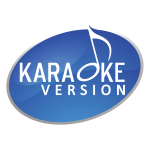
Singing the high notes without tiring your voice
For many singers, achieving and mastering acute registry is often a challenge and is similar to an artistic skater hitting a triple axel or the leap across the invisible bridge in Indiana Jones.
Why is it so difficult?
When you sing low-pitched notes, your larynx widens and your vocal cords thicken. But when you sing high-pitched notes, the larynx stretches and your vocal cords tend to strain. The larynx is therefore in constant movement and adapts to what you sing. If the muscles around the larynx are relaxed, the transitions will be smooth. On the other hand, when muscles are contracted, transitions will be rough and uncontrolled.
Furthermore, your vocal cords vibrate faster when you hit the higher notes.
Reaching the high notes isn't necessarily a piece of cake for everyone. A smoker, for example, tends to have thicker vocal cords and a deeper voice and will find it more difficult and a longer process to reach the higher notes.
That being said, the ability to quickly vibrate one's vocal cords requires that a singer also masters breathing. Let's use the example of climbing; the throat tends to tighten and air flow is limited if we are not master climbers. Unconsciously, the body begins to struggle, the chin and shoulders tighten and we stretch the entire body, as if the body itself where trying to reach the high notes. This may explain why many beginner singers manage to emit only a small cry of an asthmatic guinea pig in trying to hit the high notes without proper vocal preparation when along their quest for vocal Everest.
Some exercises
1. Project sound further by lifting the chin, clearing the air column and supplying it with sufficient breath.
2. Find the right air source. This should come from the diaphragm and not from the upper part of the lungs otherwise you will not have enough reserve as the air in our lungs is too compressed and pushes against our vocal cords.
To do this, place your hand on the belly. This is the only part that should move. To practice, lie down and place a book on your chest. If you are practicing the technique properly, the book should not move.
3. Your larynx tends to go up when you sing high-pitched notes. Train it to go down by relaxing the muscles of the esophagus. Place your hand on your throat in order to feel its movements. Relax and try singing the high notes by soliciting only your tongue and your mouth.
4. Sing along to a range of notes, from one end to the other. Start with a breathy sigh, then a soft spoken voice before transitioning to normal vocals. This makes it possible to maintain the spontaneity of the first test of range of notes. It may help to identify the passage in the head voice, this will help you when making the transition.
5. Try yawning when singing. By yawning, your entire vocals as an instrument, take on the perfect position to reach the highest notes.
6. Test the resonance of your song. Notes should not remain in the lower part of your mouth but must resonate above. This is difficult to visualize but with time and training, you will be able to locate the sound.
7. Do not force your voice. Your vocal cords are muscles and better not to risk a complete "breakdown." If you have too much difficulty singing high-pitched songs, transpose them to suit your range.
8. Stay hydrated as much as possible, focusing on hot drinks.
Published on: 2 October 2017



